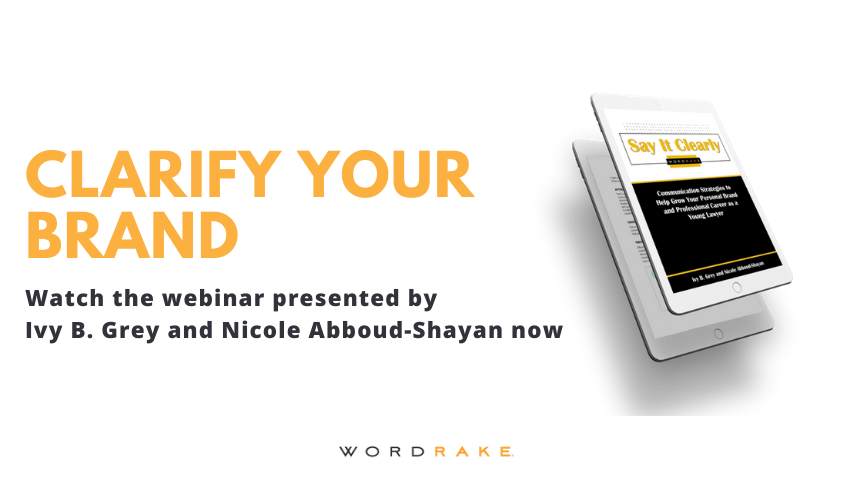I am a fan. An unabashed fan. I admire people openly and I tell them—and everyone within earshot. So if you want my advice on networking, that’s it: Be a fan.
Now that I’ve been an embarrassingly open fanchild online for nearly a decade, I get to give this approach a name. I call it my “Give First” philosophy. It’s similar to Dan Sullivan’s advice to “create value first” in Who Not How: The Formula to Achieve Bigger Goals Through Accelerating Teamwork. And Adam Grant’s advice that the more you invest in others, the more opportunities you create in Give and Take: A Revolutionary Approach to Success. Grant writes, “Givers succeed in a way that creates a ripple effect, improving the success of people around them.”
What Does It Mean to “Give First”?
“Giving first” shifts the focus from transactional relationships to transformational ones. People notice when your support is genuine, and they’re drawn to those who show up with enthusiasm and kindness.
The idea is simple: Before you ask for attention or support, give it to others. Mention others first. Like their posts first. Share their content first. Listen first. Be a fan first. By committing to giving first, you lead with generosity rather than self-promotion.
Not everyone will give back right away or give back directly—and that’s not the point—but the act of giving creates a positive community. Sullivan’s concept of working with the right “whos” reinforces that when you give openly and without calculation, you’ll naturally attract people who will contribute meaningfully. And Grant’s idea of delayed reciprocity aligns with this, where goodwill often returns in unexpected ways over time.
Putting “Give First” Into Action
Most people aren’t natural networkers and your mental picture of networking is probably cringeworthy, so you must put in the work to change your mindset. Build a new habit. Train for it just like you would with any other personal goal. Start small and increase your commitment each week. Spend 5-15 minutes per day. Over time, these consistent efforts will lead to meaningful professional relationships and a stronger community.
To give authentically, you must spend some quiet time observing and learning from what others say. Build up to engaging online by reading the content your connections share and learning who the knowledgeable, respected leaders are. If you jump in presenting yourself as an expert, you’ll be perceived as mindlessly shouting and people will turn away from you.
Once you’ve spent a few weeks observing your community, start engaging positively. This is the time for likes, reshares, and authentic grateful comments. If you don’t have anything kind to say, keep it to yourself. The lifespan of a low-quality social media post is short, but the community’s memory of a mean comment from an interloper is long. Let the algorithm gods help that low-quality post recede into oblivion—it happens faster if you leave it alone.
When you have a sense of the community code of conduct, start contributing to the community. Begin with small, deliberate actions. Comment thoughtfully. Share articles that inspire you and explain why they matter. When you share, you can start conversations and build bridges. Tag the author and ask a thoughtful question or offer your own perspective. This can turn a disconnected series of comments into a near-real-time interaction and an ongoing exchange of ideas. Sharing shows that you’re genuinely interested in others’ work.
While social media encourages quick exchanges, long-form writing offers depth and nuance. This is your chance to add value. When you create content, bring others into the conversation. Reference their ideas. Highlight their contributions. By quoting, referencing, and linking to their work, you amplify their voices while building your own credibility. This collaborative approach demonstrates thoughtfulness and a willingness to work together.
Remember, the goal of giving first is to uplift others without expecting immediate returns. These practices create opportunities for connection and collaboration that are far more useful than self-promotion.
Giving First for Introverts
If you’re not a public person, you can give first privately. Simple acts like introducing colleagues, endorsing others, or sharing their articles with helpful notes in private messages can have lasting impacts. These helpful gestures build credibility and community. When you engage in this way, you’re not only supporting individuals but also contributing to a stronger, more inclusive professional community.
Generosity Doesn’t Require Self-Sacrifice
A common concern about leading with generosity is the risk of burnout or being taken advantage of. Grant addresses this in Give and Take. He recommends setting boundaries and looking for mutual benefits through what he calls “otherish giving.”
- Focus on Win-Win Relationships: Givers succeed by looking for ways to help others that also align with their own goals. Instead of giving at your own expense, identify opportunities where both you and others can benefit. Look for the Matchers who aim for a balance of giving and receiving; they amplify the effects of your generosity by creating a fair and reciprocal dynamic.
- Prioritize High-Impact Giving: Focus on areas where your skills, knowledge, or resources are most useful—not by taking on the office housework. Spend time helping people who are likely to pass it forward or contribute meaningfully to the relationship. This allows you to contribute meaningfully without overextending yourself.
- Trust in Delayed Reciprocity: Givers often receive benefits in unexpected ways and at unexpected times. Stay patient and open to how your generosity might come back.
Conclusion
Networking can feel daunting, especially when you’re trying to make a name for yourself in a new community or profession. Too often, people approach networking as a self-promotional effort, focusing on “selling themselves” or “getting their name out there.” This approach can feel inauthentic, overwhelming, and is, frankly, ineffective. But when you give first, you build trust, promote collaboration, and contribute to a community where everyone thrives. That’s the kind of networking that leads to lasting success.
Try giving first. Help others before trying to promote yourself. By showing up for others—listening, supporting, and sharing their work—you create meaningful relationships that lead to opportunities over time. So next time you’re navigating a new community or looking to grow your network, remember: Give first. Help first. Listen first. The rest will (probably) follow.
If you’d like to hear me speak about my give first philosophy, I’ve discussed it on these podcasts:
Ivy Grey on the Value of Social Media for Companies and Individuals
Using Social Media and Content to Build Relationships with Ivy Grey
Ivy B. Grey is the Chief Strategy & Growth Officer for WordRake. Before joining the team, she practiced bankruptcy law for ten years. In 2020, Ivy was recognized as an Influential Woman in Legal Tech by ILTA. She has also been recognized as a Fastcase 50 Honoree and included in the Women of Legal Tech list by the ABA Legal Technology Resource Center. Follow Ivy on Twitter @IvyBGrey or connect with her on LinkedIn.









